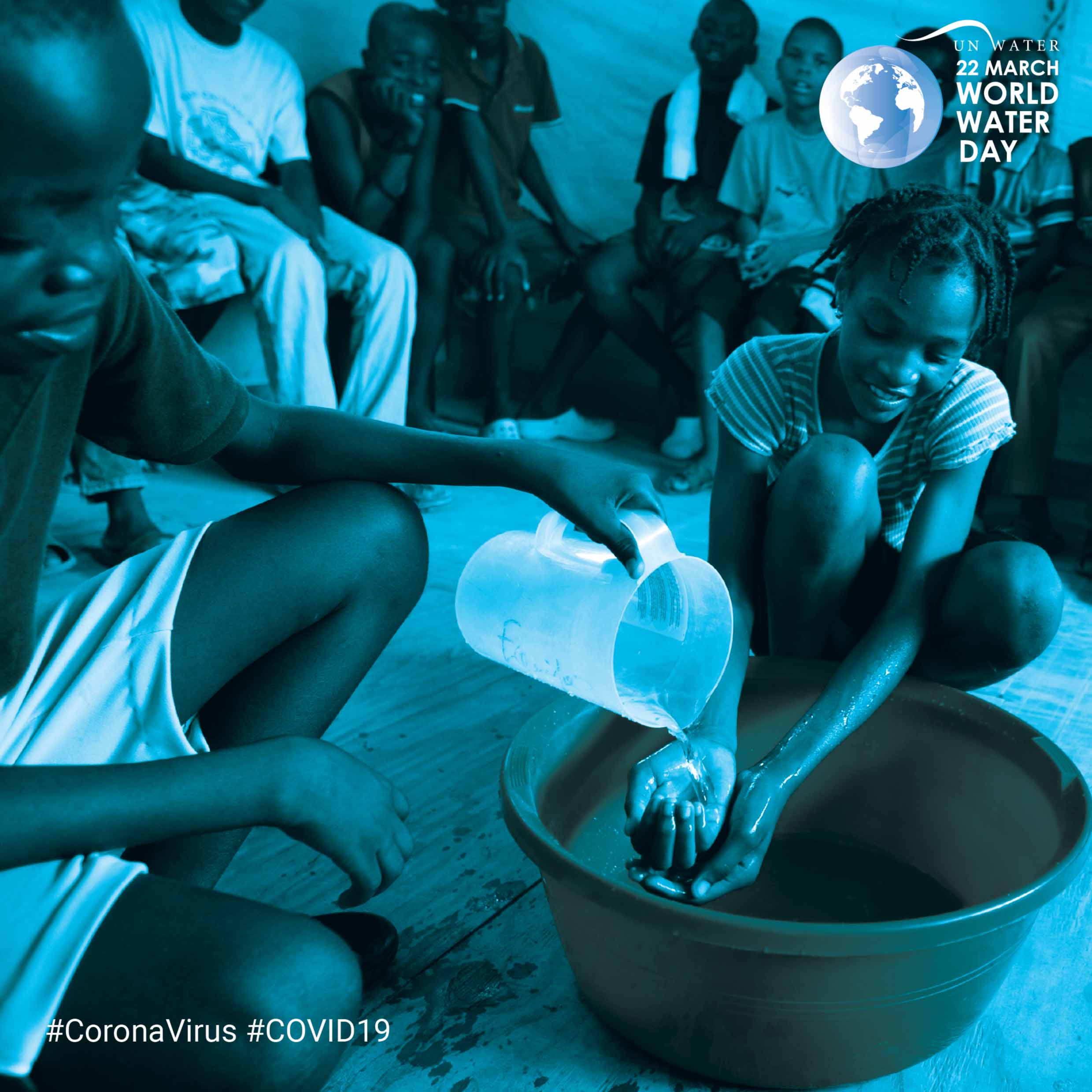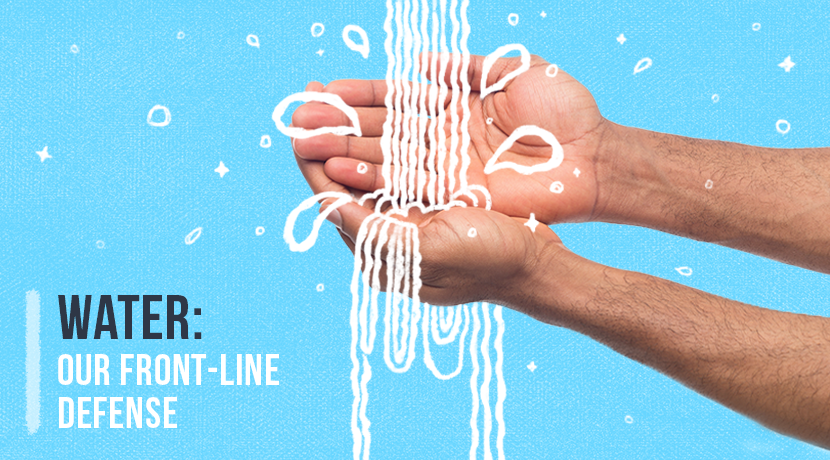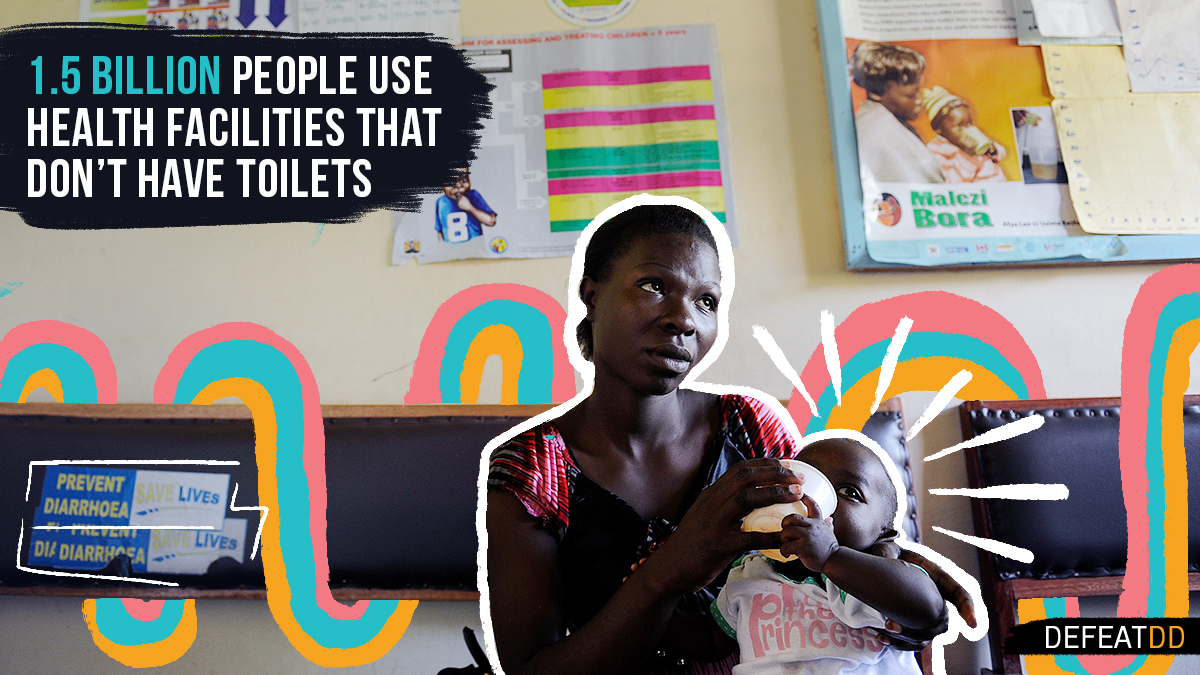
Climate Change, COVID-19, and Diarrhea on World Water Day 2020: Can We Afford to Celebrate?

Sunday is World Water Day, a day that we’ve celebrated at DefeatDD annually for over ten years. It’s always been one of our favorite ways to focus attention to our world’s growing need for clean water – and the actions we must take to attain it.
The theme for this year’s World Water Day – climate change – is one we’ve been looking forward to, as a chance to open a discussion about how environmental changes contribute to the risk of diarrheal disease. Scientists agree that climactic changes, including drought, flooding, and temperature fluctuations, can increase incidences of diarrhea. The World Health Organization has predicted an additional 48,000 cases between 2030-2050.
As it happens, this year’s World Water Day also arrives as the world’s attention is focused on the COVID-19 pandemic. There’s a noticeably less celebratory tone than recent years, and in the last week, a second theme of #SafeHands has emerged alongside climate change, reminding all of us, no matter where we live, of the importance of incorporating hygiene into our lives as a prevention strategy.
Of course, the dual realities of climate change and a viral pandemic like COVID-19 just serve to emphasize our global connectedness, as well as reinforcing the urgent need for moments like World Water Day. This is a day to focus on the power that clean water and sanitation have to curb the spread of infectious disease, heightened by climate change and COVID-19.
And, of course, the continuing crisis of diarrheal disease.

At DefeatDD, we know all too well about staggering disease tolls that take the lives of hundreds of thousands each year. Despite global progress in the last two decades, diarrhea still kills almost half a million children every year. And certain severe forms of diarrhea, like cholera – which has seasonal spikes that stand to worsen with climate change-fueled monsoons – will continue to wreak havoc if we fail to deploy clean water and sanitation, alongside WHO-recommended diarrhea treatment medicines and vaccines, to the most vulnerable communities.
But at DefeatDD, we also have seen great progress against a devastating threat – and that gives us hope for World Water Day and beyond. Death rates among children have dropped by half within the past couple decades. Here are some lessons we have learned, which we now must incorporate to face these new and emerging crises:
- Break the siloes: WASH (water, sanitation, and hygiene) is an overlapping intervention to address both pneumonia and diarrhea, the two top infectious disease threats in children globally. WHO and UNICEF’s Global Action Plan Against Pneumonia and Diarrhoea (GAPPD), released in 2013, demonstrated that global leaders and the health community could rally around a set of overlapping tools to address respiratory and diarrhea infections, in addition to disease-specific tools – water, sanitation, and hygiene being a lynchpin for both. The health sector has a long, bad habit of silos between interventions and approaches. We need to continue to fight against that.
- We must protect our front-line healthcare workers. Healthcare workers around the world are already under siege, and we must do more to protect them and the patients they care for. Only half of all health facilities in low- and middle-income countries have piped water, a third lack adequate toilets, and nearly 40% do not have soap for handwashing.
- Our attention must be on the most vulnerable. Threats like diarrhea, COVID-19 and climate change don’t respect borders, but the poorest and most vulnerable will always be most at risk. In a COVID-19 Reddit chat on Wednesday, Bill Gates acknowledged that “the developing countries…will be hurt the most.” Among many other health limitations, a full 40 per cent of people in our world today do not have a handwashing facility with water and soap at home. The reality is that, for most, #SafeHands are out of reach. (Join our campaign for a universal health revLOOtion.)

So what do these lessons have to do with World Water Day? Simple. In each, access to clean water – alongside sanitation and hygiene – is a required ingredient for progress. We can’t, and won’t, defeat diarrheal disease, or mitigate the effects of climate change, or beat back COVID-19, without greater investments in WASH. New research on COVID-19 has found that the coronavirus lasts 1-2 days in feces at room temperature and up to 4 days in diarrhea – already highlighting a new danger for communities where sanitation and water are not widely available.
We don’t always know the exact nature of the threats we face. But we know that investments in WASH can help to make the world a safer, healthier place to live for billions.
Each of us has a role to play. It’s time to roll up our sleeves, wash our hands, and advocate for access to that same basic right for all communities.


